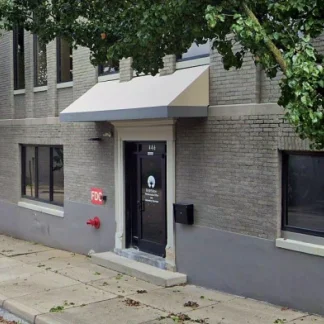Central Clinic Behavioral Health - Young Child Institute
Central Clinic Behavioral Health – Young Child Institute is a drug and alcohol r...
BrightView in Cincinnati, Ohio is an accredited addiction treatment center for adults struggling with substance use and co-occurring disorders. It offers comprehensive evidence-based addiction treatment that’s individualized to help clients sustain a long-term recovery.
By offering an array of levels of care and specialized services, the center caters to a variety of needs, ensuring that each patient’s unique recovery journey is supported adequately.
BrightView Health places a strong emphasis on medication-assisted treatment (MAT), especially for opioid and alcohol use disorders. Combining medications like Buprenorphine, Naloxone, or Methadone with counseling and behavioral therapies, MAT aims to manage withdrawal symptoms and promote a holistic recovery.
The intensive outpatient program (IOP) provides more rigorous treatment compared to standard outpatient programs, without requiring overnight stays. The IOP includes group therapy, individual counseling, and education on coping strategies.
For those with less acute needs, the standard outpatient treatment offers a flexible approach. Patients attend regularly scheduled counseling sessions while continuing with their day-to-day activities.
Peer recovery supporters are available to provide additional guidance and encouragement throughout the treatment process. These individuals, often in recovery themselves, offer unique insights and emotional support.
Contact us for more information: (513) 834-7063

Connect with BrightView by calling their admissions team directly.
(513) 834-7063 Website Get DirectionsCognitive Behavioral Therapy (CBT) is a therapy modality that focuses on the relationship between one's thoughts, feelings, and behaviors. It is used to establish and allow for healthy responses to thoughts and feelings (instead of unhealthy responses, like using drugs or alcohol). CBT has been proven effective for recovering addicts of all kinds, and is used to strengthen a patient's own self-awareness and ability to self-regulate. CBT allows individuals to monitor their own emotional state, become more adept at communicating with others, and manage stress without needing to engage in substance abuse.
Research clearly demonstrates that recovery is far more successful and sustainable when loved ones like family members participate in rehab and substance abuse treatment. Genetic factors may be at play when it comes to drug and alcohol addiction, as well as mental health issues. Family dynamics often play a critical role in addiction triggers, and if properly educated, family members can be a strong source of support when it comes to rehabilitation.
Group therapy is any therapeutic work that happens in a group (not one-on-one). There are a number of different group therapy modalities, including support groups, experiential therapy, psycho-education, and more. Group therapy involves treatment as well as processing interaction between group members.
Counselors assist each patient on an individual basis with identifying the areas they would like to work on in a goal setting atmosphere. Patients may be experiencing significant grief, anxiety, anger, guilt, shame, or many different combinations of emotions. Counselors are trained in cognitive behavior therapy, psychodynamic therapy, holistic therapy, and most importantly a humanistic approach to assist patient’s with empathy and understanding.
Research clearly demonstrates that recovery is far more successful and sustainable when loved ones like family members participate in rehab and substance abuse treatment. Genetic factors may be at play when it comes to drug and alcohol addiction, as well as mental health issues. Family dynamics often play a critical role in addiction triggers, and if properly educated, family members can be a strong source of support when it comes to rehabilitation.
Group therapy is any therapeutic work that happens in a group (not one-on-one). There are a number of different group therapy modalities, including support groups, experiential therapy, psycho-education, and more. Group therapy involves treatment as well as processing interaction between group members.
Counselors assist each patient on an individual basis with identifying the areas they would like to work on in a goal setting atmosphere. Patients may be experiencing significant grief, anxiety, anger, guilt, shame, or many different combinations of emotions. Counselors are trained in cognitive behavior therapy, psychodynamic therapy, holistic therapy, and most importantly a humanistic approach to assist patient’s with empathy and understanding.
Group therapy is any therapeutic work that happens in a group (not one-on-one). There are a number of different group therapy modalities, including support groups, experiential therapy, psycho-education, and more. Group therapy involves treatment as well as processing interaction between group members.
Counselors assist each patient on an individual basis with identifying the areas they would like to work on in a goal setting atmosphere. Patients may be experiencing significant grief, anxiety, anger, guilt, shame, or many different combinations of emotions. Counselors are trained in cognitive behavior therapy, psychodynamic therapy, holistic therapy, and most importantly a humanistic approach to assist patient’s with empathy and understanding.
Counselors assist each patient on an individual basis with identifying the areas they would like to work on in a goal setting atmosphere. Patients may be experiencing significant grief, anxiety, anger, guilt, shame, or many different combinations of emotions. Counselors are trained in cognitive behavior therapy, psychodynamic therapy, holistic therapy, and most importantly a humanistic approach to assist patient’s with empathy and understanding.
Central Clinic Behavioral Health – Young Child Institute is a drug and alcohol r...
Talbert House–Pathways, in Cincinnati, Ohio, is a residential drug and alcohol r...
Commonwealth Substance Abuse Specialists is located in Newport, Kentucky. Common...
Gateways Recovery Center provides assessment, education and treatment services f...